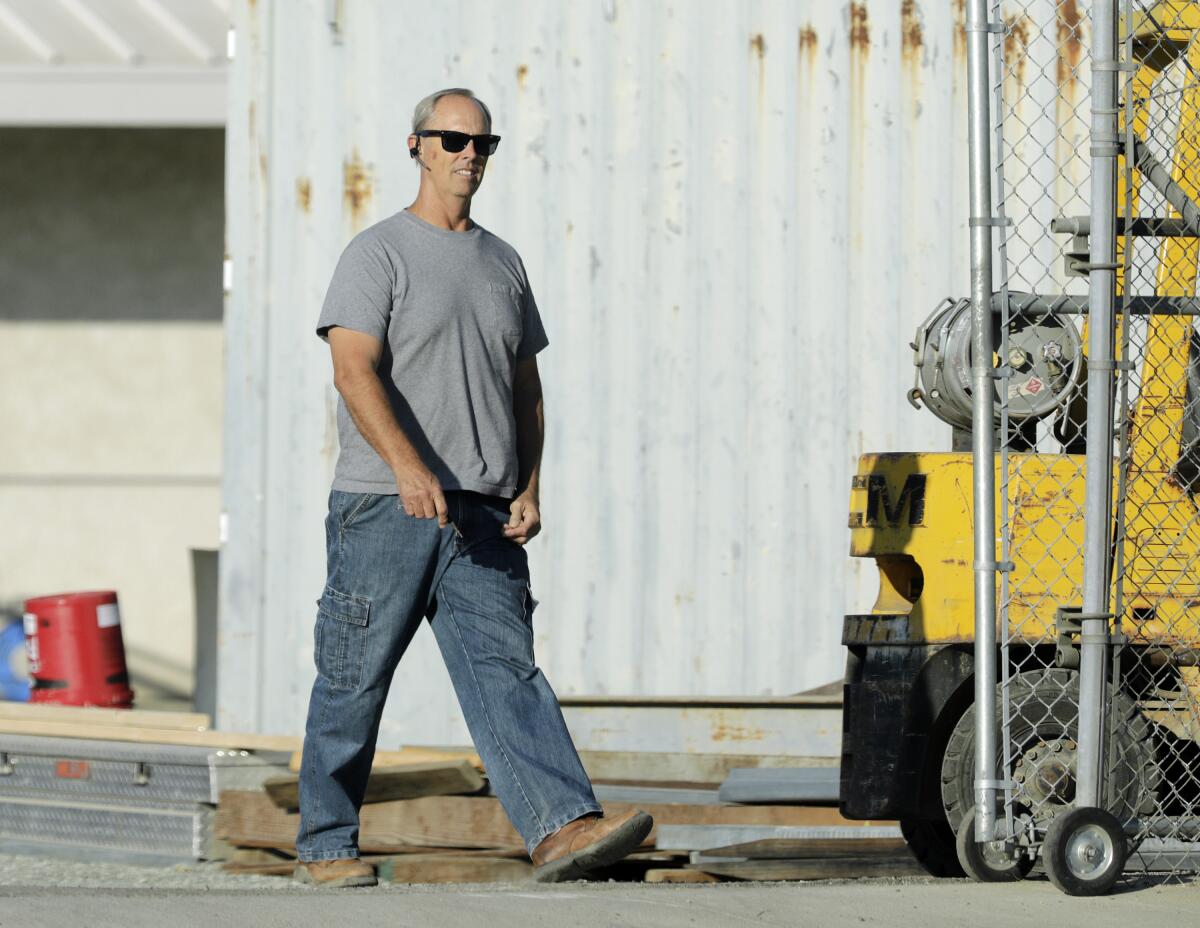Minority contractors claiming to be ‘Native American’ to undergo nationwide review

Federal, state and local authorities are intensifying scrutiny of minority contracting programs across the country in the wake of a Times investigation that found that companies received more than $300 million in government contracts based on unsubstantiated claims by the firms’ owners to be Native American.
As two House committees prepare to examine the matter, the U.S. Department of Transportation has called for a review of all Native American companies in its minority contracting program nationwide to weed out firms whose owners do not belong to state- or federally recognized Native American tribes.
At the same time, officials in California and five other states have begun stripping minority status from a number of companies highlighted in The Times report. The newspaper determined that government contracts were awarded to those companies and several others because the owners were members of one of three self-described Cherokee groups that have no government recognition and are considered fraudulent by recognized Cherokee tribes.
City officials in St. Louis said they have decertified five firms that received contracts set aside for minority-owned businesses. State contracting officials in Oklahoma and Kansas said they have removed the minority certification from two companies or intend to do so. As of this week, the two firms were still listed as certified in Kansas’ minority contractor database. Caltrans earlier lifted the minority designation of one company.
State officials in Illinois and Arkansas said they have started the process of decertifying one company in each of the states. A third business voluntarily has withdrawn from the minority contracting programs in both states, the officials said.
All of the businesses won certification as minority contractors even though birth, census and other government records reviewed by The Times identified the firms’ owners or their ancestors as white. The contracts were doled out in at least 18 states.
The chairwoman of a House oversight committee said it will take up The Times’ findings, published in June, during a hearing next month.
“Government contracts are a powerful tool for spurring economic growth and job creation, and any abuse of programs intended to level the playing field for traditionally underserved populations is completely unacceptable,” said Rep. Nydia M. Velazquez (D-N.Y.), head of the House Small Business Committee. The panel oversees the U.S. Small Business Administration, which issues minority certifications for federal contractors.
Velazquez said the review of The Times’ reporting will focus on determining how the SBA can “ensure contracts are being awarded to the intended recipients.” The review will occur at an Oct. 22 session of the panel’s subcommittee on oversight, investigations and regulations, a Velazquez spokeswoman said.
The chairman of a House committee that oversees the U.S. Department of Transportation said his panel also will examine The Times’ findings during a broader hearing on the agency’s Disadvantaged Business Enterprise program, which awards minority contracts.
Rep. Peter A. DeFazio (D-Ore.) said Congress has a duty to “make sure the DBE program is actually helping qualified, minority-owned companies.”
Each year, billions of dollars in contracts for women and minority-owned firms are issued nationwide through the Transportation Department’s program, which is separate from the SBA and administered by state and local agencies across the country.
Last month, the Transportation Department’s civil rights office sent a memo to those agencies asking them to review all companies classified as Native American-owned, according to a copy obtained by The Times. The memo noted that a 2014 rule change required that contractors claiming to be Native American belong to a government-recognized tribe.
Contractors with membership in a such a tribe are presumed to be socially disadvantaged, a key qualification for the minority contracting program.
“It has come to the department’s attention that some certified DBE firms may have relied on the owner(s)’ membership in Indian tribes that are not federally or state recognized,” the memo states. “It is important to the integrity of the DBE Program that only firms meeting all eligibility standards of the regulation, including social disadvantage, are allowed to participate in the program.”
The memo says that if the business owners are not members of government recognized tribes, “you must initiate proceedings to remove the firm’s DBE eligibility.”
In applying for minority status, the contractors The Times investigated cited membership in the Northern Cherokee Nation, based in Clinton, Mo.; the Western Cherokee Nation of Arkansas and Missouri, headquartered in Mansfield, Mo.; or the Northern Cherokee Nation of the Old Louisiana Territory, located in Columbia, Mo.
The SBA and other agencies granted minority certifications despite the groups’ lack of federal recognition as legitimate Native American tribes. The Times found that the certification process was often spotty, with officials accepting flimsy documentation of Native American heritage or unverified accounts that the contractors suffered discrimination because of their ethnicity.
One of the companies got a contract from the federal Bureau of Indian Affairs for work at a Native American university the agency runs.
The SBA has asked its Office of Inspector General to investigate The Times’ findings. The office conducts probes into possible fraud or other wrongdoing.
The minority contracts are reserved for companies whose owners can demonstrate social and economic disadvantages because of their race or ethnicity.
The combined value of government work awarded to contractors with questionable Native American ancestry is almost certainly much greater than $300 million.
Officials for many state and local agencies told The Times that they did not request proof of tribal enrollment when certifying Native American businesses as minority-owned. Some of those agencies also frequently destroy records of certifications or refuse to release them.
The SBA discards such records six years after companies graduate out of its program.
The Times reported that one of the companies, Missouri-based Bell Contracting Inc., received about $112 million in federal contracts earmarked for Native Americans or other minorities, according to government contracting records. A Texas company, AFCO Technologies Inc., was granted about $90 million in such contracts, the records show.
The owners of those companies and the others either said they are indeed Native American and thus rightfully qualify for the contracting programs or did not respond to interview requests.
Last year, The Times found that a company owned by in-laws of then-House Majority Leader Kevin McCarthy (R-Bakersfield) received more than $7 million in federal contracts because of his brother-in-law’s membership in the Northern Cherokee Nation.
Most of the work awarded to the company, Vortex Construction, was for military projects in and around McCarthy’s district, including projects he supported in Congress.
McCarthy, now the House minority leader, and the brother-in-law, William Wages, said they did nothing wrong. Wages, whose sister is married to McCarthy, said he is one-eighth Cherokee. Census and birth records available to The Times dating to 1850 show no Cherokees among his ancestors.
Wages stopped identifying his company as Native American-owned in government records and allowed his firm’s participation in California’s minority contracting program to expire without renewal after The Times started asking questions about the business.
More to Read
Sign up for Essential California
The most important California stories and recommendations in your inbox every morning.
You may occasionally receive promotional content from the Los Angeles Times.












